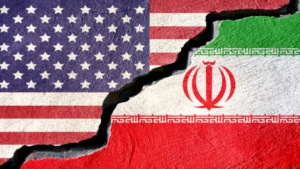Iranian Hackers Target U.S. Officials: WhatsApp Accounts Compromised in Bold Move! In a recent and alarming cybersecurity breach, Iranian hackers have compromised the WhatsApp accounts of high-profile U.S. officials linked to both the Biden and Trump administrations. This attack underscores the growing threat of state-sponsored cyber espionage aimed at infiltrating American political and diplomatic communications.
How Did Iranian Hackers Execute the Attack?
Social Engineering and Phishing Tactics
Iranian hackers used deceptive social engineering techniques, impersonating technical support representatives from major companies such as AOL, Google, Yahoo, and Microsoft. Their primary method involved sending fraudulent messages through WhatsApp, persuading victims to share login credentials, which ultimately granted the hackers unauthorized access to their accounts.
Who Was Targeted?
The attack specifically focused on individuals in the United States, the United Kingdom, and the Middle East, including:
- U.S. Government Officials – Current and former members of the Biden and Trump administrations.
- Diplomats & Political Figures – Those involved in high-level U.S. and international policy decisions.
- Cybersecurity Experts – Individuals engaged in preventing cyber threats and espionage.
Meta’s Response: How Big Tech Handled the Breach
Meta, the parent company of WhatsApp, identified the breach and quickly acted by blocking fraudulent accounts. Additionally, Meta:
- Notified U.S. Law Enforcement Agencies to ensure protection and investigation of affected individuals.
- Issued Public Warnings to prevent further infiltration attempts.
- Informed Presidential Campaigns to strengthen cybersecurity measures ahead of the elections.
This highlights the increasing need for private-sector vigilance against state-sponsored cyber threats.
Past Iranian Cyber Attacks on U.S. Politics
Iran’s involvement in cyber warfare against the United States is not new. The U.S. Justice Department recently charged three Iranian hackers affiliated with the Islamic Revolutionary Guard Corps (IRGC) for attempting to disrupt Trump’s 2020 presidential campaign. These hackers targeted U.S. government officials, political campaigns, and private companies, demonstrating a long-standing strategy of cyber espionage.
Comparing Past and Present Iranian Cyber Attacks
| Year | Target | Method Used |
|---|---|---|
| 2020 | Trump Campaign | Phishing Emails & Malware |
| 2021 | U.S. Diplomats | Social Media Impersonation |
| 2024 | U.S. Officials | WhatsApp Phishing & Social Engineering |
The Growing Threat of State-Sponsored Cyberattacks
Cyberattacks carried out by governments, particularly by Iran, Russia, and China, have escalated in recent years. These cybercriminals are often funded and protected by their respective governments, making them more sophisticated and difficult to trace.
Why Are These Attacks Increasing?
- Political Influence: Cyberattacks are used to disrupt foreign elections and diplomacy.
- Economic Espionage: Stealing trade secrets and sensitive government data.
- Retaliation: Countering sanctions and political moves by Western nations.
This underscores the urgent need for international cooperation in combating cyber threats.
How Can U.S. Officials and Citizens Protect Themselves?
Given the rise in state-sponsored cyber threats, individuals and organizations must adopt stronger cybersecurity practices. Here are key protective measures:
Essential Cybersecurity Practices
| Security Measure | Purpose |
| Enable Two-Factor Authentication (2FA) | Adds extra security to logins. |
| Verify Sources Before Clicking Links | Prevents phishing scams. |
| Use Strong, Unique Passwords | Reduces the risk of credential theft. |
| Be Wary of Unsolicited Messages | Avoids social engineering attacks. |
| Regularly Update Security Software | Keeps systems protected against new threats. |
By following these steps, officials and everyday users can better defend against cyberattacks.
Conclusion: The Need for Stronger Cybersecurity
The Iranian hackers’ infiltration of U.S. officials’ WhatsApp accounts is a stark reminder of the evolving landscape of cyber warfare. With elections approaching, the U.S. government, private sector, and individuals must remain vigilant against such threats. Strengthening cybersecurity measures and increasing awareness will be crucial in protecting against future attacks.





